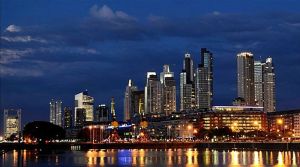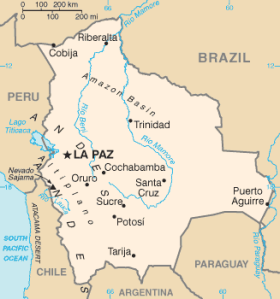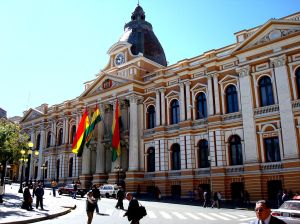Francisco A. Laguna & Francisco Moran
This is the first of our Southern Cone country profiles, focusing on Argentina, the second largest member of Mercosur. Together with Brazil, it spearheads Mercosur policies.
Over the past 50 years, Argentina has gone full circle from having a left-wing government initially under General Juan Domingo Peron, to a brutal 7-year dictatorship ending in 1983, and back to a socialist / nationalist regime. Even 30 years after the end of totalitarian rule, many of the country’s domestic policies and political reactions echo back to that period in history.
Over the past 2 decades, Argentina has sustained economic challenges, especially the 2001 collapse of its economy, requiring a restructuring of its sovereign debt and the implementation of austerity measures. In power since 2003, the late Nestor Kirchner and his wife, current President Cristina Fernandez, have overseen a recovery of the Argentine economy and have implemented often nationalistic, protectionist policies.
The Energy Sector & Nationalization of Foreign Assets

Photo Credit: Wikipedia commons: HerFariasP
Argentina’s energy policies have limited industry growth. For years, the government has subsidized consumer costs: Argentines pay a fraction of the cost for energy in comparison to rates charged in Brazil and Chile. Energy tariffs remain essentially at 2002 rates, and at the same time, the government is subsidizing energy companies. In 2011, Argentina was forced to import energy for the first time in 20 years.
The policies do not make sense, and they result in a weak sector that provides irregular service. The Fernandez government cast blame on Repsol – the then-majority shareholder of energy company YPF – charging financial improprieties. It nationalized 51% of YPF stock. Not much good has happened since then: Repsol is suing the government for $ 10.5 billion plus damages; and Repsol is suing other energy companies (Chevron and Brindas) to prevent joint-shale gas exploration with YPF.
Worse, the energy sector has not improved and international and foreign investor confidence has been eroded. The government seems to realize that its policies have to change: it is poised to raise tariffs and end consumer subsidies. That leaves the Repsol issue to resolve.
Government Defaults and Fudging Inflation Numbers

Photo Credit: Economist; INDEC; The State Street PriceStats Inflation Index
As a result of the debt crisis, Argentina renegotiated terms with the majority, but not all, of the holders of its sovereign debt. The government has refused to pay on the bonds owned by the remaining holdouts. The creditors won a significant legal battle in November 2012, when a federal district court ruled that Argentina was, indeed, liable for the repayment of the outstanding original bonds, about ~ 1.3 + billion. The Fernandez government appealed, but the Second Circuit has thus far largely backed the bondholders. Hearings are scheduled for February 27.
Argentina’s international reputation has been further tarnished by the International Monetary Fund, which just censured the country for failure to report accurate economic statistics, particularly inflation. Official and unofficial inflation rates for 2012 differ by approximately 15%.
Again, not good news for Argentina.
Regional Isolationism & Protectionist Measures
The Fernandez administration has followed a steady regional and protectionist policy. For instance, Argentina has consistently opposed trade negotiations between Mercosur and the European Union on the basis of fear of unfair competition from EU companies and products. This move has limited Mercosur’s external commercial relationships and affects member country economies. The Pacific Alliance, recently formed by Chile, Colombia, Mexico and Peru, is ready to compete with Mercosur by negotiating free trade agreements and specifically targeting Asia.

Photo Credit: Denise Mayumi
In addition, since 2011, in an effort to promote its domestic industry, Argentina has increasingly established de facto trade barriers by denying import approvals for finished products in various sectors, including consumer goods and foods. Even products considered strategic to maintaining Argentina’s trade balance have been subjected to additional approvals, such as obtaining a non-automatic import licenses granted at the government’s discretion.
These isolationist and protectionist measures increasingly remove Argentina from the world economic stage.
Despite these challenges, Argentina can still present opportunities for foreign investors and international products. TransLegal has strategized with US and EU firms in the formation of joint ventures in Argentina as well as assisted our clients understand the requirements to import foods and other products into the country. Contact us with your questions related to Argentina and Mercosur.








